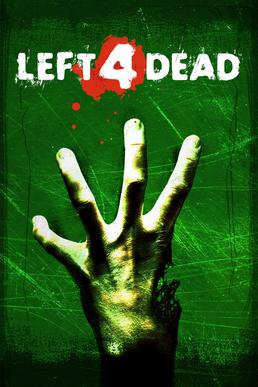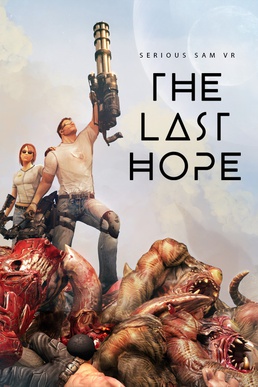
Michael Abrash is an American programmer and technical writer. He is best known for his magazine articles and books on code optimization and graphics for IBM PC compatibles and for working at id Software in the mid-1990s on the rendering technology for Quake. Since 2014, he has been the chief scientist of Oculus VR, a subsidiary of Meta Platforms.

Turtle Rock Studios is an American video game developer founded in March 2002 by Michael Booth. It was acquired by Valve in 2008, but was re-founded in 2010 as a subsidiary of Slamfire Inc. by Phil Robb and Chris Ashton. Turtle Rock Studios is involved in the creation of original titles as well as the provision of consulting services to the digital entertainment industry.

Left 4 Dead is a 2008 first-person shooter game developed by Valve South and published by Valve. It was originally released for Microsoft Windows and Xbox 360 in November 2008 and for Mac OS X in October 2010, and is the first title in the Left 4 Dead series. Set during the aftermath of a zombie outbreak on the East Coast of the United States, the game pits its four protagonists, dubbed the "Survivors", against hordes of the infected.

Dota 2 is a 2013 multiplayer online battle arena (MOBA) video game by Valve. The game is a sequel to Defense of the Ancients (DotA), a community-created mod for Blizzard Entertainment's Warcraft III: Reign of Chaos. Dota 2 is played in matches between two teams of five players, with each team occupying and defending their own separate base on the map. Each of the ten players independently controls a powerful character known as a "hero" that all have unique abilities and differing styles of play. During a match players collect experience points and items for their heroes to defeat the opposing team's heroes in player versus player combat. A team wins by being the first to destroy the other team's "Ancient", a large structure located within their base.

Chet Faliszek is an American video game writer who has worked for companies like Valve and Bossa Studios, having been involved in the story writing for series such as Half-Life, Portal, and Left 4 Dead.
Survival mode, or horde mode, is a game mode in a video game in which the player must continue playing for as long as possible without dying in an uninterrupted session while the game presents them with increasingly difficult waves of challenges. A variant of the mode requires that the player last for a certain finite amount of time or number of waves, after which victory is achieved and the mode ends. The mode is particularly common among tower defense games, where the player must improve the defenses of a specific location in order to repel enemy forces for as long as possible. Survival mode has been compared to the gameplay of classic arcade games, where players face off against increasingly stronger waves of enemies. This mode was intended to give the game a definite and sometimes sudden ending, so that other players could then play the arcade game as well.
Superhot is an independent first-person shooter (FPS) video game developed and published by Superhot Team. Though the game follows traditional first-person shooter gameplay mechanics, with the player attempting to take out enemy targets using guns and other weapons, time within the game progresses at normal speed only when the player moves; this creates the opportunity for the player to assess their situation in slow motion and respond appropriately, making the gameplay similar to strategy video games. The game is presented in a minimalist art style, with enemies in red and weapons in black, in contrast to the otherwise white and grey environment.
Eve: Valkyrie was a multiplayer dogfighting shooter game set in the Eve Online universe that was designed to use virtual reality headset technology. Originally launched for Microsoft Windows for use with the Oculus Rift virtual reality headset, CCP Games had announced they plan to enable cross-platform play between the three major VR systems: the Oculus Rift, the HTC Vive, and the PlayStation VR. Released in March 2016, the game had two game mode options: Chronicles could be played in single player, while Combat allowed eight by eight combat PvP missions. Reviews generally criticized the limited plot and limitations of single player mode, although the described "arcade experience" was praised for having intuitive controls and "exhilarating" dogfighting features, with PC Powerplay dubbing it "arguably the best VR experience currently available for the [Oculus Rift] platform."

Zombie Army Trilogy is a third-person tactical shooter video game developed and published by Rebellion Developments. It is a spin-off to the Sniper Elite series and was released on March 6, 2015, for PlayStation 4, Windows, and Xbox One. A port for the Nintendo Switch was released on March 31, 2020, in North America and Europe, and in Japan on May 28, 2020. The game takes place in an alternative version of the final days of World War II, with the German army close to defeat. Adolf Hitler deploys a last resort plan to raise the fallen as zombies through occult rituals and turn them against Allied forces, thus causing Germany to become overrun with the undead.

HTC Vive is a line of virtual and mixed reality headsets produced by HTC Corporation. The brand currently encompasses headsets designed for use with personal computers as well as standalone headsets such as the Vive Focus line, Vive Flow glasses, and the Vive Elite XR mixed reality headset.

The Lab is a virtual reality (VR) video game developed by Valve and released for Windows on April 5, 2016. It uses VR technology to showcase a series of play experiences accessed through a hub room. The game is set in the Portal universe and offers eight different game types that involve short demo experiences that use different aspects of the VR capabilities. Variety is also offered beyond the experiences themselves by the amount of interactability with objects in the environment that is included. During the 20th Annual D.I.C.E. Awards, the Academy of Interactive Arts & Sciences nominated The Lab for "Immersive Reality Game of the Year".

Job Simulator: The 2050 Archives, commonly referred to as simply Job Simulator, is a virtual reality simulation video game developed and published by Owlchemy Labs for Microsoft Windows, PlayStation 4, PlayStation 5, Oculus Quest, Oculus Quest 2 and Meta Quest 3, in which players participate in comical approximations of real-world jobs. A sequel, Vacation Simulator, was released in 2019.

Serious Sam VR: The Last Hope is a 2017 first-person shooter game for virtual reality (VR) developed by Croteam VR and published by Devolver Digital. One or two players fight waves of enemies, including bosses, across five thematic planets. The enemies approach from a 180° field and the player can use dual-wielded weapons while moving across a limited space. To develop The Last Hope and experiment with other VR implementations, Croteam VR was established as a specialised division of Croteam. Devolver Digital announced the game at E3 in June 2016 and launched it in early access that October. After several updates, it was released in September 2017 for Windows with compatibility for the HTC Vive and Oculus Rift VR headsets. The Last Hope received mostly positive reviews, with post-release reception lauding the game's gameplay and visuals while criticising difficulty spikes and issues with the online multiplayer mode.

Rick and Morty: Virtual Rick-ality is a virtual reality game compatible with HTC Vive, PlayStation VR and Oculus Rift developed by Owlchemy Labs and published by Adult Swim Games for Microsoft Windows on April 20, 2017. It is based on the American animated series Rick and Morty, whose series co-creator Justin Roiland aided in the development. A port for the PlayStation 4 was released on April 10, 2018.

Five Nights at Freddy's: Help Wanted is a 2019 virtual reality survival horror video game developed by Steel Wool Studios and published by ScottGames. It is the eighth main game in the Five Nights at Freddy's series, following Ultimate Custom Night, and the ninth installment overall. It presents itself as "The Freddy Fazbear Virtual Experience", produced for the fictitious corporative entity Fazbear Entertainment to help improve its public image after a series of debilitating lawsuits, following several incidents and disasters that allegedly occurred at their various locations.

Half-Life: Alyx is a 2020 virtual reality (VR) first-person shooter game developed and published by Valve. It was released for Windows and Linux with support for most PC-compatible VR headsets. Set five years before Half-Life 2 (2004), players control Alyx Vance on a mission to seize a superweapon belonging to the alien Combine. Like previous Half-Life games, Alyx incorporates combat, puzzles and exploration. Players use VR to interact with the environment and fight enemies, using "gravity gloves" to snatch objects from a distance, similarly to the gravity gun from Half-Life 2.

The Walking Dead: Saints & Sinners is a virtual reality first-person shooter survival horror game for Windows, PlayStation 4, PlayStation 5, Oculus Quest, Oculus Quest 2, and Oculus Rift, developed by Skydance Interactive in partnership with Skybound Entertainment. It is based on the comic book series The Walking Dead by Robert Kirkman. Initially released on Steam and Oculus platform on January 23, 2020, it was released on PlayStation VR in May 2020. Additionally, the title was ported to Oculus Quest in October 2020, alongside PICO 4 in January 2023.

Death Horizon: Reloaded is a first-person shooter for virtual reality devices. The game was released on September 26, 2019. The game is available for Oculus Quest, and there is a version in development for Oculus Rift, HTC Vive, and PlayStation VR. It is a sequel to the game Death Horizon, which came out on September 21, 2017 for the Oculus Go and Samsung Gear VR platforms.















